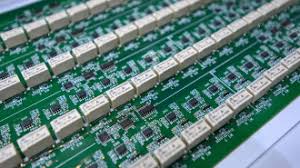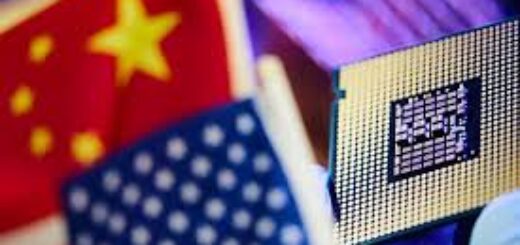Following the Cadence Trade Violation Bouncing Ball a Typical Scheme (Part II of III)

It takes something more than intelligence to act intelligently — Fyodor Dostoevsky
Criminals are not as smart as they think they are. There is nothing so unique that elevates a scheme into the ethereal world of brilliance. The schemes get to be “typical” and the means by which they are executed are often fairly obvious.
In most white collar cases, criminals are often sociopaths or worse, psychopaths. A sociopath carries a narcissistic hubris and a mistaken believe that their criminal scheme is somehow distinct, and from their perspective, unique and undetectable. Often, when exposed, they have long-winded explanations surrounded by blanket denials of wrongdoing.
The Cadence settlement incorporates these observations — the perpetrators built a rinky-dink scheme that was bound to be exposed.
From February 2015 to April 2021, Cadence and its indirectly owned and wholly controlled subsidiary in China, Cadence Design Systems Management (Shanghai) Co. Ltd. (Cadence China), conspired to provide EDA tools (which were subject to the Export Administration Regulations (EAR)0 to the prohibited entity, NUDT, a Chinese military organization, through Central South CAD Center (CSCC), an alias for NUDT, and another associated entity, Phytium Technology Co. Ltd. (Phytium), without the requisite licenses from BIS. Specifically, Cadence, Cadence China, and their employees exported, reexported, and transferred in-country U.S.-origin EDA tools to CSCC, despite having knowledge that CSCC was an alias for NUDT. As a result, Cadence and Cadence China exported and caused to be exported EDA tools at least 59 times through September 2020, when Cadence terminated Cadence China’s business relationship with CSCC due to CSCC’s association with NUDT.
Cadence admitted that Cadence China employees installed EDA hardware on NUDT’s Changsha, China, campus and that NUDT personnel downloaded EDA software and IP technology from Cadence’s download portals while Cadence and Cadence China, through its employees, had knowledge that NUDT had been added to the Entity List.

On Feb. 18, 2015, the same day that NUDT was added to the Entity List, Cadence’s export control officer emailed Cadence and Cadence China employees that NUDT had been added to the Entity List “meaning that export licenses will be required if sales are made.”
Further, in March 2016, a Cadence China employee authored a presentation for a quarterly sales review meeting with her colleagues stating (as translated from Chinese) that as of February 18, 2015, the U.S. Department of Commerce had “embargoed” four national supercomputer centers in the PRC, including NUDT, due to U.S. microprocessor chips being used in the “TianHe” supercomputing systems believed to be used for nuclear explosion simulation. Cadence also admitted that its employees who conducted work at CSCC’s location on NUDT’s campus knew about connections between CSCC and the Chinese military.
Cadence China employees did not disclose to other Cadence personnel, including Cadence’s export compliance personnel, that exports to CSCC were in fact intended for delivery to NUDT and/or the Chinese military.
For example, in May 2015, a few months after NUDT was added to the Entity List, Cadence’s then-head of sales in China emailed colleagues, cautioning them to refer to their customer as CSCC in English and NUDT only in Chinese characters, writing that “the subject [was] too sensitive.”
Further, in October 2019, a Cadence China employee instructed another to recall and recirculate an updated version of a weekly email on Cadence China’s customers in China. The updated version of the weekly email removed a reference to the People’s Liberation Army of China in relation to CSCC that was written in the original version. Employees of Cadence’s subsidiaries, including employees of Cadence China involved in sales to CSCC, also received sales commissions that incentivized achieving sales quotas as part of their compensation packages.
In October 2020, while Cadence and Cadence China had knowledge that items previously sold and exported to CSCC had in fact been exported to NUDT in violation of U.S. export control laws, Cadence consented to CSCC’s assignment to Phytium, a semiconductor company closely associated with CSCC and NUDT, of CSCC’s contracts for Cadence EDA tools.

Prior to the transfer of Cadence’s business from CSCC to Phytium in or about October 2020, Cadence’s business with CSCC included contractual agreements with Phytium, reflecting Phytium’s ongoing collaboration with CSCC and NUDT during the period in which CSCC was used as an alias for NUDT.
Cadence, through its subsidiaries, including Cadence China also had knowledge that Cadence China’s business with CSCC involved Phytium, and that NUDT personnel were affiliated with Phytium.
Some of Cadence China’s contracts with CSCC listed Phytium as the contractual party and stated that the work would occur at NUDT. Internal Cadence communications show certain Cadence employees’ understanding that CSCC and Phytium were effectively the same entity both before and after the decision to transfer Cadence China’s business from CSCC to Phytium. Cadence and Cadence China transferred U.S.-origin EDA software and IP technology to Phytium until February 2021.
In March 2021, Cadence placed Phytium on export hold as a result of its internal compliance review and discontinued transactions with Phytium, including any hardware transfers. Phytium was later designated on the Entity List in April 2021.















